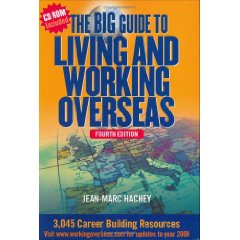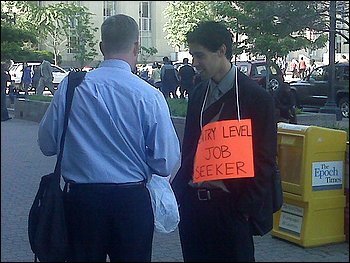Transitions in your career are inevitable. You’ll not only have to negotiate and navigate the details of accepting and starting a new job, but necessity also demands that you bow out of your current position with grace, humility, and professionalism. Following up on a request from a reader, my thoughts on how to best leave a job (and I’d love to hear more, as all situations are different and may require unique steps and strategies):
—If your departure is most likely imminent, but you still haven’t completely decided you’re leaving, don’t mention it until you’re 100% sure. Don’t say anything to your coworkers (unless you trust them to keep a lid on it) and certainly don’t tell your boss. This may seem obvious but I mention it because when I was once considering leaving a job, I thought about telling my boss before I’d made the final decision. A new opportunity had popped up unexpectedly, one that I was pretty sure I couldn’t pass up, but I really valued my relationship with my old boss and didn’t want him to think that I was bailing on him. So I thought that cluing him into to my decision-making process would be an honorable thing to do. I was promptly talked out of this, which was for the best, I think.
—When you are ready to go, tell your boss/supervisor immediately and in person. Do it early in the day so you don’t spend all day thinking about it. Have your intended “departure strategy” thought out and ready for discussion (i.e., “my last day will be…”), but be flexible if you can.
—Once you’ve told the boss, tell everyone else in person too. If you work in a small office, this won’t be a challenge (at least logistically). If you work in a larger office and it’s not feasible to tell everyone in person, consider a different strategy: I’m a proponent of making sure everyone hears it from you, so you may wish to tell a select number of colleagues (those to whom you are closer/have worked with closely) in person, and then send emails to the rest. I would recommend avoiding the mass email if possible and instead composing one message that can be copied over and over again into individual emails to each of your coworkers. This is a small but effective personal touch that will make the email notification of your departure seem less distant or cold. (I’d prepare the emails before you tell anyone of your departure, so once you’ve told your boss and others in person, you can fire the messages out immediately.)
—Submit an official resignation letter to your boss, with your last day noted in it. Most organizations require this, others may not ask. But it’s probably best to do one regardless. I suggest not bringing the letter into the meeting with the boss when you inform him/her of your departure—I’d prefer to keep that meeting more personal and less formal, and dropping a resignation letter on the desk seems very stiff and formal. Instead, submit the letter later, after you’ve hashed out the details of your departure in person.
—As best you can, get your work in order for your successor. If time permits, leave a position “guide” behind, outlining the general nature of the job as you experienced it, the projects that are currently underway, and a list of important contacts that your successor should be in touch with. (Depending on the situation and your relationship with the organization, you might also wish to make yourself available, on a limited basis, for questions and for some in-person training of your successor. But I should also stress that you want to be very careful about how much you make yourself available in this way and, if you’re worried in any way that such an offer might be taken advantage of, it’s probably best to avoid it altogether.)
—Make sure loose ends are tied up. For example, if your organization owes you any money, such as a reimbursement for travel, get that taken care of before you leave. If you can’t, take copies of paperwork and documentation with you for proof down the road.
—Take with you whatever you might need for the future: contacts, business cards, examples of work you’ve done, etc. Document your work in the position as soon as possible, so you remember what it is you did (how extensively is up to you, but at least enough to flesh out your resume).
—Let your former coworkers who you’d like to keep in touch with on a professional basis know this. No need to promise them anything, but if you’d really like to stay in touch with them professionally, it’s good to put that on the table. Then make sure to follow up once you’ve gotten settled into your new job.
And now just as I’m finishing this post, I see that Alanna’s posted some suggestions on how to leave a job you hate. A key there, as Alanna notes, is resisting the temptation to vent as you walk out the door.
Any other suggestions on how to leave a job? Things to avoid? Horror stories?




